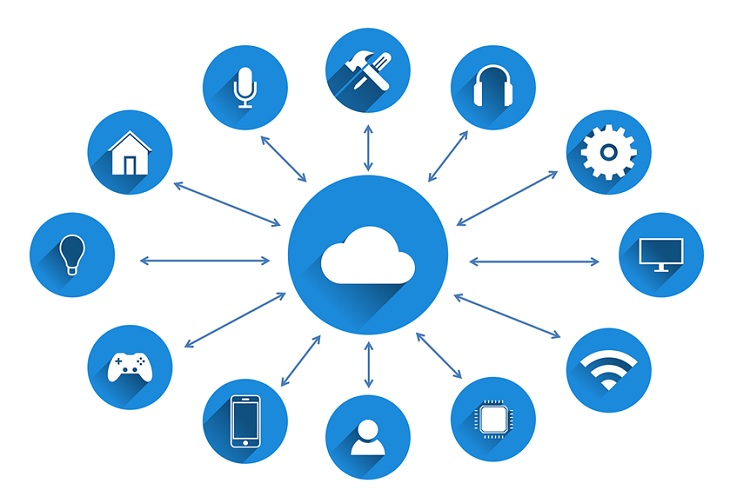Plenty of software has been created via cloud computing throughout the years, from storage platforms like Google Drive to software-as-a-service platforms like Zoom. The cloud has two main advantages: its speed and security. After all, it’s faster to access files online than traditional server storage and hosting. The cloud is also embedded with multiple levels of security, like encryption, to keep the hackers at bay. By 2025, experts estimate that the global cloud computing market size will reach $285.3 billion, a 29.2% year-over-year growth.

Contents
Cloud Computing’s Contributions in the Industries
If you think your business doesn’t need the cloud, then you’re going to lag behind your competitors. To give you an overview, here are some of cloud computing’s major contributions in the biggest industries in the market.
Telemedicine
The cloud has plenty of uses in healthcare, but its biggest contribution lies in telemedicine. These are apps or software that “connect” the patient to the medical professional. There are two common uses of telemedicine: interactive medicine and Remote Patient Monitoring (RPM). The former is when patients and medical professionals communicate directly via an app or software.
RPM is when the patient provides all the medical data (such as sugar levels) to their physicians using a smart device. Rather than talking to the physician, the patient is able to send the data from their home and that information is then used to determine the diagnosis.
Personalized Learning
With distance learning becoming more of a norm, a ton of learning management systems (LMS) are making their rounds in the education sector. An LMS is a cloud-based software that stores and organizes student data, allowing instructors better insight on how to better approach them with their lessons.
It runs side-by-side with an AI that can analyze grades, score average, curricula, and more. LMS has been shown to improve student engagement, which helps improve their recollection of the topic.
Customer Relationship Management

Another big use of cloud computing today is Customer Relationship Management (CRM) technology. And while plenty of industries like real estate and insurance use it often, no other field thrives from it more than retail.
CRM tools let retailers store customer information (like their contact details and buying habits), letting them identify sales opportunities and create campaigns that will resonate with their target market. Anybody can access a CRM, too, so information can be gathered from all points in a business.
Design Sharing
Product designs aren’t just made by one user and immediately sent off for manufacturing. They need to go through regulatory checks, thorough edits, and numerous prototypes. Cloud-based viewers allow designers to share and edit PCB designs online, enabling them to present their work to relevant people. Since the files can be uploaded in. CAD and other raw formats, the receiving party can probe, navigate individual components, and make the proper notes on the product’s design.
Fleet Management
Fleet industries have some of the most complex IT systems in the world. Whether it’s the process of handling critical business processes and facilitating repairs to overseeing driver locations and tracking parcels, fleet companies are always buried under a constant influx of work that requires multiple, agile computer power to manage. An interconnected cloud fleet management software ensures that everything is managed in one location. This helps certify that the tasks are being completed efficiently.
Cloud computing is the key to pushing your business into the future, no matter what industry you’re in. Cloud software is flexible enough that its solutions can be tailored to your business needs, whether you need a business-wide storage platform or software accessible in any location. Now that a lot of companies are beginning to consider a return-to-work program, the cloud can even assist your business in preparing your office for the future.






























